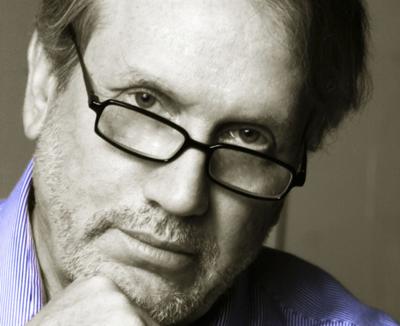Should We Be Concerned About A Nuclear War?

I spent my first 10 years living in Michigan City, which is 35 nautical miles from Chicago. I was a Cold War kid. Our bogeyman was Soviet General Secretary Nikita Khrushchev, who made a lasting impression when he took off his shoe at the United Nations, hammering the podium while threatening to “bury” the U.S.
At Edgewood Elementary School, we practiced nuclear drills (along with fire drills). Downtown Michigan City had “fallout shelters” marked with yellow and black signs. After the 1962 Cuban Missile Crisis, my father, Jack Howey, who was city editor of the News-Dispatch, didn’t betray his emotions to the family, but later described several sleepless nights during that 13-day crisis. I remember my first grade teacher telling us that President Kennedy was going to address the nation. She had a worried look on her face.
I conjure these events and images because here in 2023, we find ourselves once again on the nuclear straight-razor. Last week, former Russian president Dmitry Medvedev, a top ally of President Putin who now serves as deputy chairman of the Security Council, posted on Telegram: “It never occurs to any of the lowlifes to draw an elementary conclusion from this: The defeat of a nuclear power in a conventional war can trigger a nuclear war. Nuclear powers have not lost major conflicts on which their fate depended.”
That is just one in a continuum of reckless nuclear saber-rattling from the Putin regime as it flounders in its war with Ukraine, a conflict it picked and is now losing. The Guardian reported that the Kremlin is now deploying Pantsir defensive missile intercept systems around Moscow and near Putin’s dacha.
The Daily Beast reported that Ukrainian authorities are now saying that Russia’s biggest cities are bound to suffer attacks. “Internal escalation of the war in Russia is inevitable,” said Mykhailo Podolyak, an adviser to the Ukrainian president, told The Daily Beast.
This past week, President Biden, German Chancellor Olaf Scholz and NATO have agreed to send Abrams and Leopard 2 tanks to Ukraine. The German Leopards will be delivered in a couple of months, in time for an expected Spring offensive that could determine the fate of this brutal war. These tanks have the ability to do what the first key advocate of the tank during World War I – First Lord of the Admiralty Winston Churchill – envisioned, which is to break across trenched “no man’s land.”
This past week, the Bulletin of the Atomic Scientists announced that its 2023 Doomsday Clock has been set forward to the closest to catastrophe it has ever been, just 90 seconds before midnight.
The horrific war in Ukraine “has increased the risk of nuclear weapons use, raised the specter of biological and chemical weapons use, hamstrung the world’s response to climate change, and hampered international efforts to deal with other global concerns,” the Bulletin stated. “Russia’s thinly veiled threats to use nuclear weapons remind the world that escalation of the conflict — by accident, intention, or miscalculation — is a terrible risk. The possibility that the conflict could spin out of anyone’s control remains high.”
“No one can do this alone, but everyone can do something,” said the Bulletin’s President and CEO Rachel Bronson. “We hope that the moving of the clock is a motivator that we all need to pay attention to these key issues.”
Eric Schlosser, author of “Command and Control: Nuclear Weapons, the Damascus Accident, and the Illusion of Safety and Fast Food Nation” writes in The Atlantic: “Several scenarios for how Russia might soon use a nuclear weapon seem possible: (1) a detonation over the Black Sea, causing no casualties but demonstrating a resolve to cross the nuclear threshold and signaling that worse may come, (2) a decapitation strike against the Ukrainian leadership, attempting to kill President Volodymyr Zelensky and his advisers in their underground bunkers, (3) a nuclear assault on a Ukrainian military target, perhaps an air base or a supply depot, that is not intended to harm civilians, and (4) the destruction of a Ukrainian city, causing mass civilian casualties and creating terror to precipitate a swift surrender — the same aims that motivated the nuclear attacks on Hiroshima and Nagasaki.”
“Any response by the Biden administration would be based not only on how Russia uses a nuclear weapon against Ukraine but also, more important, on how Russia’s future behavior might be affected by the American response,” Schlosser adds. “Vladimir Putin can determine if, when, and where a nuclear attack occurs in Ukraine. But he cannot control what happens after that. The consequences of that choice, the series of events that would soon unfold, are unknowable. One thing is clear, after all my discussions with experts in the field: We must be ready for hard decisions, with uncertain outcomes, that nobody should ever have to make.”
Should we be losing sleep over this reckless rhetoric of the despot Putin and Dmitry Medvedev as this war worsens?
Well, perhaps.
This is not a situation for overt panic, but reasonable concern. It means having discussions with your family, friends and co-workers about what to do, where to go, and how to communicate should such a crisis develop.
The columnist is managing editor of Howey Politics Indiana/State Affairs at StateAffairs.com/pro/Indiana. Find Howey on Facebook and Twitter @hwypol.
